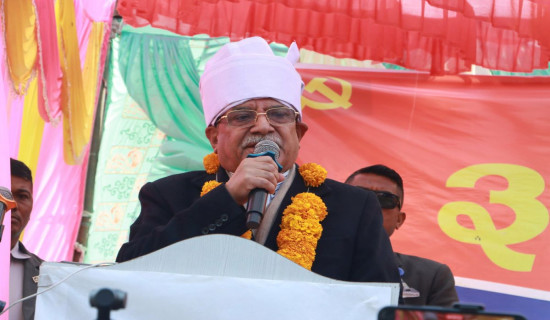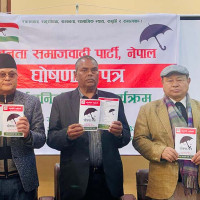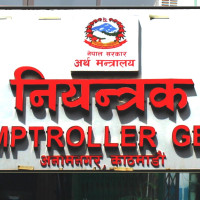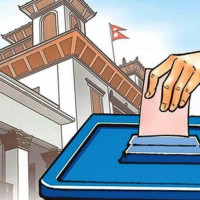- Saturday, 14 February 2026
Choose Generic Drugs Over Brand-name Ones
Healthcare systems are an integral part of human life. Everyone needs healthcare facilities. For various reasons, people are bound to spend a large amount of money on medical treatment. Those suffering from chronic diseases such as diabetes and hypertension are bound to spend regularly on their treatment. The elderly have to spend a lot of money on their treatment vis-à-vis the young. Parents have to spend on the treatment of their children because children are a vulnerable group from a medical point of view. Likewise, women have their own ailments. Anyway, people are bound to earmark a certain amount of money for medical treatment.
Medical expenses include hospitalisation charges, pathology expenses, drug expenses and so on. There are two types of drugs in the market: brand-name and generic drugs. Brand-name drugs are launched in the market after research, animal and clinical studies and tests. They may be patented. On the other hand, generic drugs do not need to undergo these. They are manufactured using the same formula as brand-name drugs after the patents of the latter have expired. The presence of multiple generic drug companies causes competition in the market, driving down the prices of the drugs. So generic drugs are far cheaper than their brand-name counterparts. Studies show that generic drugs may be cheaper by a whopping 80 or 85 per cent.
Therapeutic effects
Even if generic drugs are much cheaper, their therapeutic effects are almost the same as those of brand-name drugs. Both generic and brand-name drugs are more or less the same in dosage, safety, strength, the route of administration (oral or by injection) and quality. Generic drugs work the same way as brand-name drugs and have the same therapeutic benefits, a feature known as bio-equivalence. This is because the same active ingredients are used in both generic and brand-name drugs. However, there may be certain differences such as in size, appearance, colours and flavourings but these features have nothing to do with therapeutic value. These are inactive ingredients. There may, however, be a difference in absorption of brand-name and generic drugs into the system. But this is clinically acceptable and does not affect their efficacy.
It may be noted that significant differences in features such as in size and colours may adversely affect patients’ compliance with treatment, make it difficult for doctors and patients to identify the medication and lead to placebo and nocebo effects. The placebo effect is when a patient feels that he or she is being administered a drug that has no medical ingredients. On the other hand, the nocebo effect occurs when a patient’s negative expectations of a treatment engender more negative effects, exacerbating his or her condition.
A US research has shown that both generic and brand-name drugs have comparative outcomes for chronic conditions such as diabetes, osteoporosis and psychiatric conditions like anxiety and depression. Another research has suggested that the use of generic drugs may not have serious clinical impacts on cardiovascular conditions. The databases from Medical Literature Analysis and Retrieval System Online (MEDLINE) and Embase have shown that hospital visits by generic drug users are higher. But it has not been definitively shown that generic drugs lead to more hospital visits.
People from low strata of society tend to go for generic drugs because of the lower price tag. Some people using generic drugs are found to be predisposed to worse health outcomes. But there is no enough evidence to prove this. Specific health conditions and the current status of research may be taken into account while choosing generic drugs. It is up to patients and their doctors to choose generic or brand-name drugs.
It would be pertinent to note that Minister of Health and Population Pradip Paudel has recently formed a Generic Drug Suggestion Committee. The Committee has been instructed to prepare procedures in a simple format for doctors and health workers to compulsorily prescribe generic names. The Committee has also been instructed to study the practice adopted by some hospitals of prescribing generic drugs. The Committee will give suggestions on making arrangements for people to get all kinds of quality drugs at cheaper prices from hospital pharmacies. The Ministry will take a decision based on the suggestions given by the Committee.
The Ministry has taken this step to enable people to get drugs at affordable prices. The Public Health Service Act, 2025 also stipulates that doctors and health workers write generic names while prescribing drugs but this provision has remained fallow. This provision needs to be reactivated for the benefit of common people. There is corruption everywhere. The medical field is no exception. In collusion with pharmaceutical companies, doctors tend to prescribe brand-name drugs and force their patients to buy the drugs for greed of commission. Even pharmacies get benefit from pharmaceutical companies for selling their drugs. The Ministry intends to extirpate such a malpractice by enforcing the aforesaid provision in the Health Service Act.
Competition
It may be noted that in 2015, the American College of Physicians called upon doctors to prescribe generic drugs as far as possible. The Food and Drug Administration (FDA) also gives priority to generic drugs to retrench high costs of drugs. In 2017, the FDA announced a Drug Competition Action Plan (DCAP) to further intensify competition for generic drugs in the market and to boost greater efficiency and transparency in the drug review process.
The initiative taken by Minister Paudel is praiseworthy. If people go for generic drugs, they can save a lot of money. But they are now compelled to buy brand-name drugs as per their doctors’ prescriptions. After the provision of prescribing generic drugs has come into force, there should be a proper mechanism to ensure that doctors prescribe generic drugs. Otherwise, the practice of prescribing costly drugs will go on.
(Maharjan has been regularly writing on contemporary issues for this daily since 2000.)






-original-thumb.jpg)









-original-thumb.jpg)
